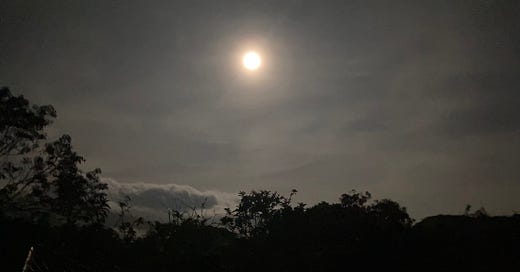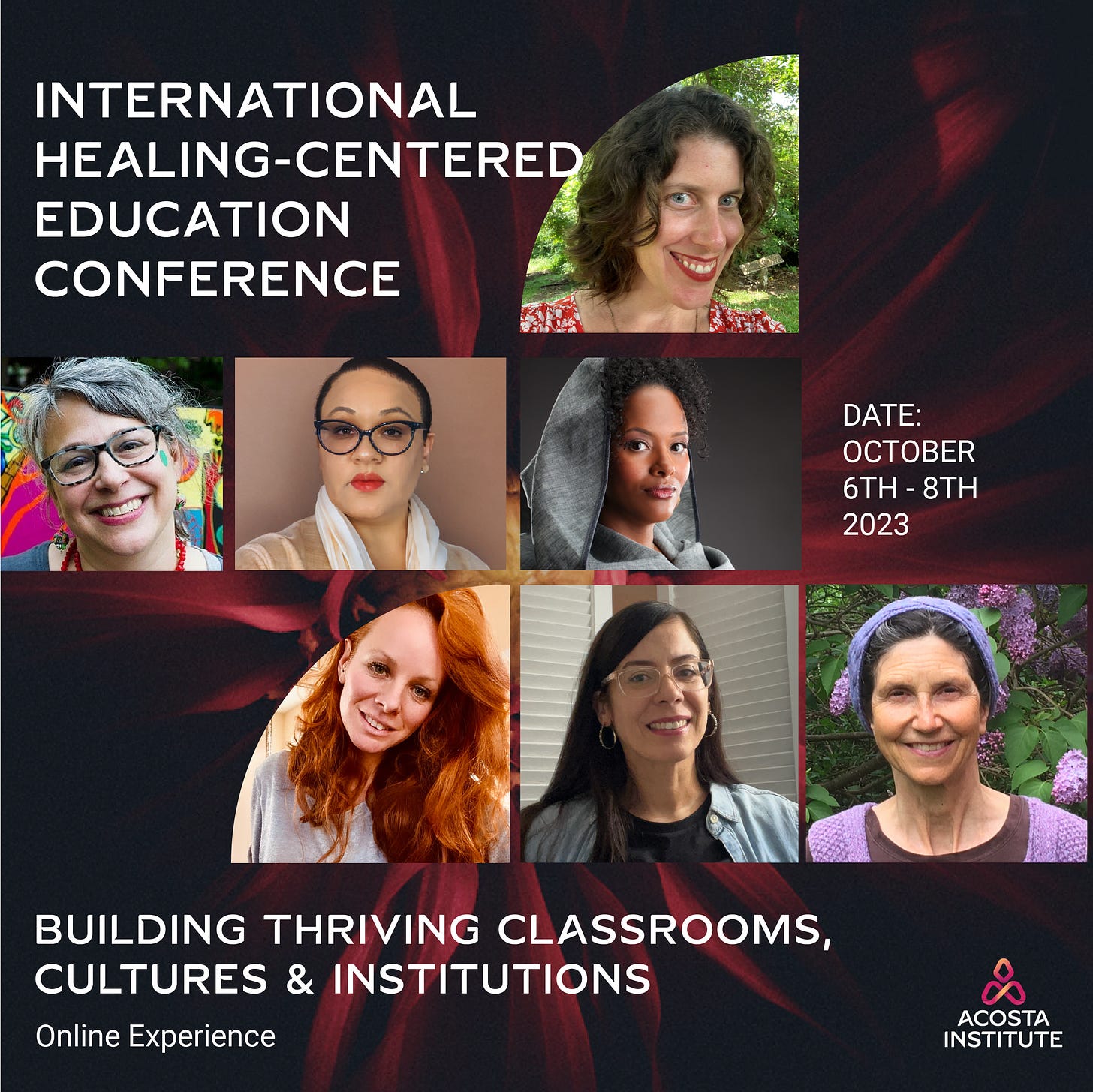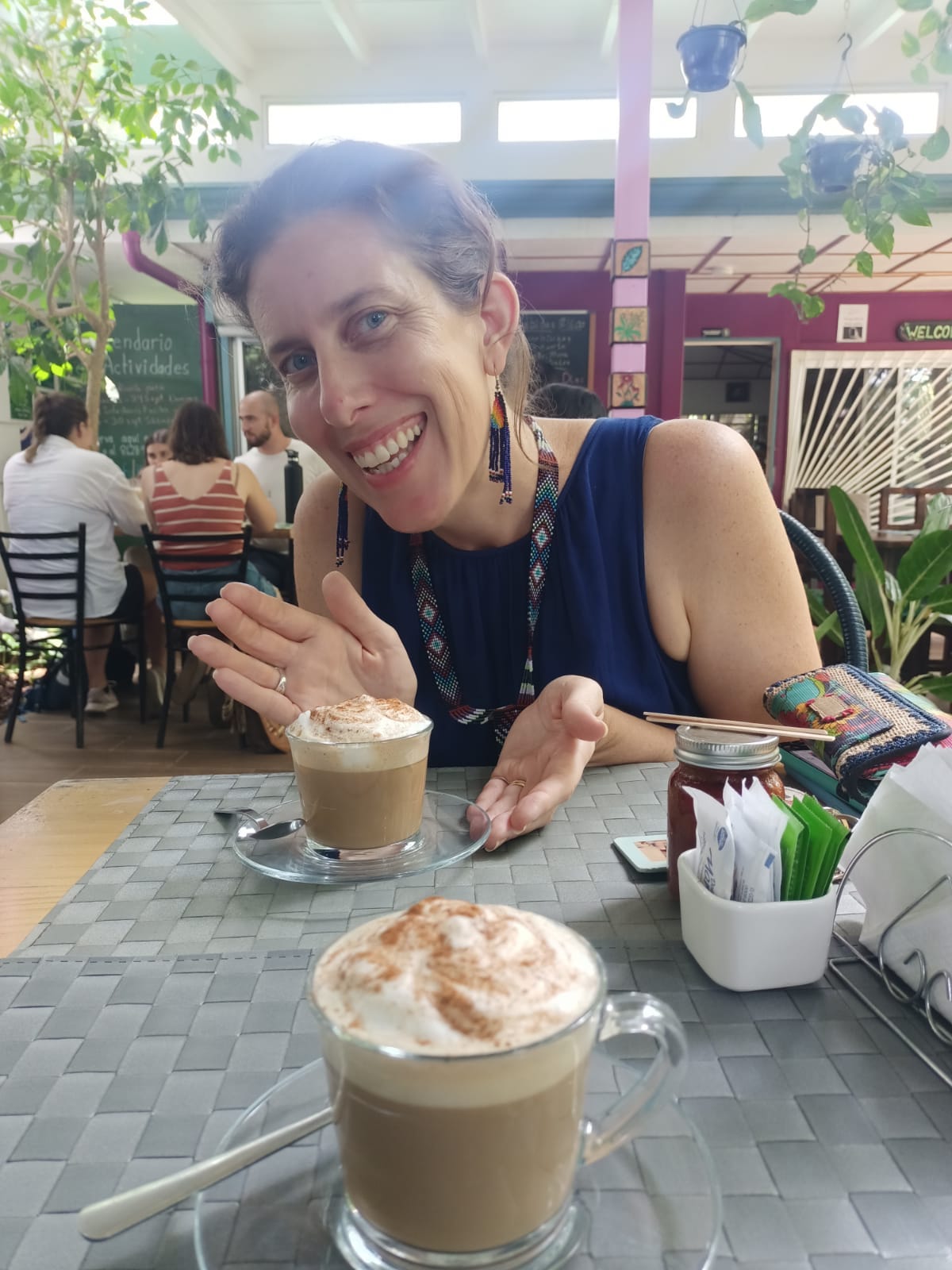How can we center healing in education?
Leading up to the International Healing-Centered Education Conference
Dear beloved readers,
Happy October! Today I am thinking with you - and thinking out loud - as I pull my thoughts together for the International Healing-Centered Education Conference, put on by the Acosta Institute. It takes place next weekend, registration is free, and you can find out more and register at the preceding link!
I will be taking part in two events:
Healing-centered Peace Education and Inner Work panel with my beloved peace education students Jill Diamond and Oshan Gunathilake (Friday, Oct. 6th from 2:30-4pm Costa Rica/US Mountain time)
Community dreamwork as intercultural peacelearning workshop with my beloved collaborator and priestess extraordinaire Minna Kim (Saturday, Oct. 7th from 5:30-7pm Costa Rica/US Mountain time).
I would love to see you there!
Healing-Centered Peace Education in Higher Education
I am often thinking of the bell hooks quote: “The classroom remains the most radical space of possibility in the academy.”
I believe this quote with all my being, and try to foster space for these possibilities as best I can.
As I prepare for our panel, here are some of the things I am thinking about:
How do we create conditions and spaces for healing within structures and institutions that were not designed for this? How do we create space for healing amidst institutions that are still actively causing harm?
Name the harm of schooling, past and present. As Oshan said, “If we are talking about healing-centered education, we need to ask, healing from what?” We need to be able to articulate the ways that schooling has caused and continues to cause harm. This ranges from how we are taught to doubt ourselves, to not trust ourselves, to not listen to our bodies or intuition, and fear being wrong, to the very insidious overt and covert ways that schooling teaches us to internalize racism, sexism, nationalism, capitalism, ablism, etc. and the way that it is a mechanism for perpetuating these systems of oppression. The grind culture that we are taught through school so that we will endure it and expect it throughout our lives. It doesn’t have to be this way, and healing-centered education can disrupt this harm, in part by naming it.
This also means talking about harmful aspects of our current situation and seeing how we can disrupt them. What are the ways of knowing that are being valued, and how can we make space beyond them? Whose voices are being centered (in readings or class discussions), and how can we decenter them and make room for voices that are often silenced or marginalized? The schedule might be overly intense and a recipe for burnout, but how can we work and play with it to integrate rest and slowness where we can? Grades can cause harm (and not be the most effective way to evaluate or provide feedback), but they are part of the agreement we have signed up for, so how can we work with them in ways that are more liberatory? (Perhaps a post for another day, but I try to practice ungrading to the degree I can, and integrate dialogue feedback, self-assessment and peer review as much as possible).
Slow down. Related to #1, when the purpose of schooling is fitting into capitalism, there is a constant forward motion, speed, a false sense of urgency (Oshan’s words) and a need for more more more. Never underestimate the power of slowing down, or better yet, stopping. Slowing down and teaching students the skills of slowing down and rest (which mindfulness and other contemplative practices are very helpful for) can be deeply healing. I always start class by inviting us to arrive, fully, together.
Put well-being at the center, together. We talk always talk about this on Day 1. I tell students I don’t want to burn out, and I don’t want them to, either, and the structure of schooling and the intensity of our schedule makes this nearly inevitable, but it doesn’t have to be. Together, I think we can be rigorous in our learning while also centering our well-being, and supporting one another in this. This can be supported through mindfulness and centering practices when we arrive, checking in and asking genuinely how we are doing, by trying to get our needs met (while balancing that we might have different needs at different times).
Take genuine interest in how one another are doing. How are you? I am consistently blown away by how powerful this simple question can be when it is meant genuinely. I mean it, how are you doing? (How are you doing, dear reader? :) Inquiring into one another’s well-being, being genuinely interested and caring, and trying to help each other take care when we can, is huge. (And sometimes that question needs adapting to truly tune in, and can be adapted: How are you feeling as you show up today? How is your body, mind, heart, spirit? How is your energy today?)
Let’s redefine rigorous. I firmly believe we can be academically rigorous while also being rigorous in our care and in our relationships*. If we are truly trying to educate for transformation, for more just and peaceful worlds, we must attend to this2, be rigorous in this. It is the most important thing.
Play! Let’s not take ourselves to seriously. As Peter Gray of
has written about extensively, humans were born to learn, and we were born to learn through play. Classrooms of all ages can be tragically devoid of this, especially in higher ed. I am consistently blown away at how healing play can be, even the simple act of tossing a ball around for an icebreaker, or doing silly gesture or sound games. Play is healing, as my friends at the Association for Applied and Therapeutic Humor are so skilled at articulating and modeling!And finally, all of this is grounded in community. We don’t do it alone. One of the other harms we learn through the education system is toxic individualism. Building classroom community is an active disruption of this, and supports all of the other above points. They all require community. We need each other to center healing in our educational spaces.
This is an intial sketch of what I’ll be sharing about in our panel, and I would love to see you there to discuss more! I hope you can join us :)
What are your thoughts on healing-centered education and how educational spaces can promote healing and reduce harm? How do you center healing in your life or the spaces you are in? Let me know in the comments or join us at the conference. I hope to see you there!
One last note: The end of the calendar year is quickly approaching, and for a few years, I have been wanting to share some of my end-of-year processes in more of a course-like format but haven’t figured out how. I decided that this year, I will make this content available to paid Enchantable subcribers! It will be a mini-course on solstice and new year’s rituals and inspiration. If you would like to receive this, I welcome you to upgrade to the level of a paid subscription! I plan to offer more along these lines in the coming months, such as on mindfulness and other topics.
With love, always,
Stephanie
* “rigorous care” is a phrase I derive from Bianca Suyama of Unidiversidade das Kebradas of Ecoversities Alliance, a phrase she shared with me during my doctoral dissertation research. Also, the Gesturing Towards Decolonial Futures Collective talks about the balancing act of relational and intellectual rigor.







